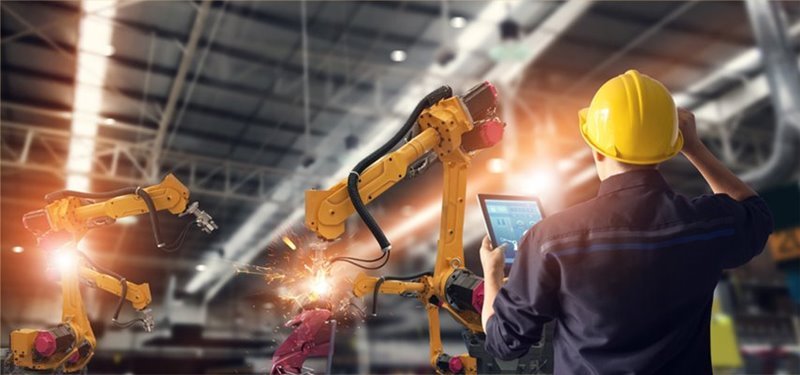The ASME Fundamentals of Industrial Automation training course provides the key foundational knowledge to evaluate industrial automation (IAT) properly as a potentially viable technology solution to improve an existing industrial production process.
Learners are exposed to principal concepts, equipment, areas of study, and terminology used in industrial automation with robotics.
This course gives learners the ability to discuss and understand, at a high level, the techniques and strategies used in industrial automation with robotics projects as well as the capability to make suggestions for the types of robotics hardware that are appropriate for a given task. This course is also an opportunity to receive an introduction to the social, cultural, safety, and financial topics and concepts relevant in industrial automation with robotics.
Topics covered in this course include:
- Robotics terminology
- Descriptions of the topics needed in industrial automation from electrical, mechanical, and computer engineering as they relate to robotics
- Mechatronics defined in relation to robotics
- Types of robots and how they are used
- Small, focused case studies and/or scenario-based tasks
By participating in this course, you will learning how to successfully:
- Analyze the three Ds of industrial automation: Dull, Difficult, Dangerous
- Describe the right tool to use in the manufacturing process
- Examine the pros and cons of different approaches to industrial manufacturing process improvement
- Explore approaches to overcome social impacts of industrial automation in a workspace
- Evaluate a manufacturing assignment based on critical thinking and problem solving using the case studies
- Determine if an automated robotic system is a possible solution for a company
Additional benefits
- Gain vocational and generalist knowledge in industrial automation, a many-step process
- Combine engineering experience and skills with new knowledge and apply it in real world case studies
- Fulfill career goals in a rapidly growing field
- Gain an understanding of business considerations for industrial automation decision making
- Gain an understanding of the human and social impacts of industrial automation
Who should attend?
- Engineers across various fields (i.e., mechanical, electrical, computer, etc.) without formal training in robotics from previous academic programs
- Individuals who are considering a career in industrial robotics automation
- Working engineers in small to mid-size manufacturing companies looking to add robotic automation to their manufacturing process
- Owners and managers of companies seeking a greater understanding of robotic integration into manufacturing processes
Course participants are expected to:
A Certificate of Completion will be issued to registrants who successfully complete this course



